LA REVUE RUSSE
51
Russie, la force des faibles
Lilia Androsenko
Abstract
Rethinking the patriarcal paradigm of the "weaker sex" with the Souslov sisters in Russia of the 1860s-1900s
In the second half of the 19th century, a dominant patriarchal paradigm driven by a spirit of revolution, anarchy and libertarianism, was rethought and challenged by an increasing number of Russian women rallying to claim their social rights. Fully committed to fighting for “weaker sex” rights, the Souslov sisters were among the first of these militants who came to symbolize women’s emancipation in Imperial Russia. Innate skills, unwavering motivation and a wealth of intellectual potential led Apollinaria (1839-1918) and Nadezhda (1843-1918) to empower themselves and women in general through their writing, unconditional love and contributions to science. Known for her relationships with the novelist Fyodor Dostoevsky and the philosopher Vassili Rozanov, Apollinaria expressed her passion through her short stories and personal diary, while her younger sister Nadezhda would become the first woman in Imperial Russia to graduate as a qualified physician. This article explores not only the Souslov sisters’ social, academic and cultural involvement but also their personal contributions to the feminist movement, as well as their considerable role in reconsidering the dialectic reasoning of male strength and woman weakness.
* * *
Françoise Defarges
Abstract
Lidia Zinovieva-Annibal : being a writer and a woman during the Russian “Silver Age”.
During “the Silver Age” of Russian Literature, Lidia Zinovieva-Annibal succeeded in asserting herself as both a writer and a woman. A notable achievement, given that during this period, well known for its extraordinary creativity, women’s writtings were considered second rate, and categorized as “woman’s literature”. As a driving force of literary modernism, symbolist writers (predominantly male) made it even more difficult with a pervasive discourse on the Feminine, which they placed at the center of artistic creation as a mystical material and not as a creative subject.
Zinovieva-Annibal found her own strategies to be acknowledged as a writer. Unlike her contemporary well-known author Zinaïda Gippius, who adopted masculine masks, Zinovieva-Annibal embraced an original mixture of allegiance and subversion. She played the role of muse to her husband, a prominent leader of the symbolist movement, while at the same time publishing daring works that parodied Symbolist ideology, or explored new topics, creating original writings and narrative structures.
* * *
Dimitri Filimonov
Abstract
Fragile ties between the USSR and the West : a study of role of cultural passeur.
This is a case study of a Soviet encounter with a sample of Western culture during the Cold War period : the reception of French cultural production in the USSR through the personality of Yves Montand, the first important artist that marks profoundly the Soviet cultural field alter the Stalin’s death. Focusing our study on the reception of the French culture by Soviet publics, the study is based on analysis of the private letters addressed to Obraztsov who served as « cultural passeur ». His role is crucial for the recognition of the French singer in the land of the Soviets. Obraztsov, as a cultural mediator, knows the cultural, but especially ideological, codes of his country. He then manages to construct an image, choosing the traits "in conformity" with Soviet reality, which allows realizing the cultural transfer and contributing to the improvement of the official and informal contacts between the two countries.
The study is based mostly on unpublished archival sources, such as the correspondence between Obraztsov and Montand, and the many unpublished letters from Soviet citizens to Obraztsov about his programs on Yves Montand, but also on primary sources such as press articles. This study is a part of my work to prepare the PhD thesis entitled "The Making of the Image of France in the Soviet Media : 1946-1958" under the direction of Mr. André Filler, MCF HDR at the University of Paris VIII.
* * *
Karolina Foletti
Abstract
Emigration as intellectual openness. Hélène Iswolsky and “the strength of the weak”
After the revolutions of 1917, Helen Iswolsky (1896–1975), the daughter of the Russian ambassador in Paris, became an émigré. Searching for the means of survival, she used her knowledge of languages to work as a journalist and writer presenting Russia’s history and presence to the western audience in her articles and novels. Sensitive to political problems and social issues, she joined western intellectuals (e.g. Jacques and Raisa Maritain, Dorothy Day) and other émigrés (Nicolas Berdiaev) in the reflection on the historical events and in the search for responsible attitudes to the situation at that time. Entering the Catholic Church in 1923, she became strongly involved in the promotion of ecumenical dialogs.
Intellectual as well as religious aspects of Iswolsky’s work are closely connected with her initial situation of “weakness” – i.e. with her experience of exile. The latter is, however, transformed in “strength” in Iswolsky’s capacity to “cross the borders” between the Orthodox and Catholics, between Russian and western intellectuals, and also between the rich and poor.
* * *
Alexis Leprince
Résumé
Notre article propose de s’intéresser à la création en Russie et en russe du texte Les règles du savoir-vivre dans la société moderne de Jean-Luc Lagarce, en mars 2017. Cette pièce a été portée à la scène par l’acteur et metteur en scène français Stanislas Roquette, à l’invitation du Théâtre de Drame de Saratov et de l’Institut français. Le spectacle construit sa dramaturgie autour du rapport de force entre générations. L’article analyse dès lors cette dramaturgie en montrant comment elle s’est constituée au fur et mesure des répétitions avec les acteurs russes, et comment cette dramaturgie propose dans le spectacle achevé une hypothèse – politique_ ? - sur la force des faibles.
Abstract
The balance of power between generations in the staging of Les règles du savoir-vivre dans la société moderne by Stanislas Roquette.
Our paper focuses on the creation in Russia and in russian of Jean-Luc Lagarce’s play Les règles du savoir-vivre dans la société moderne. It was staged in March 2017 by the French actor and director Stanislas Roquette, at the invitation of the Saratov Drama Theatre and the French Institute. The show builds its dramaturgy around the balance of power between generations. The article therefore analyses on the one hand the formation of this dramaturgy during the rehearsals with the Russian actors, and on the other hand how this dramaturgy formulates a hypothesis – a political one, perhaps - on the strength of the weak.
* * *
Darya Loyola
Abstract
The aim of this article is to bring into focus the dialectic relations between the State and the academics on the timing of the political regime change in 1917. By demonstrating the evolution of the framework of the university policy, the actions of the government and the reaction of the academic community, we reveal a strong connection of the University and the political during the crisis of the political system. In addition, the author hopes that with the help of some records of the academics the readers could seize the spirit of the time of that historical moment and the air of a great change that academic community was inhaling with a mix of emotions_ : enthusiasm, uncertainty, hope, distrust, indignation and disappointment.
* * *
Anna de Montfort-Khlopova & Guillem Achermann
Résumé
Depuis la transition économique des années 1990, l’État russe s’efforce de soutenir l’innovation des petites et moyennes entreprises (PME). À l’aide de différents instruments conceptuels pour encourager les PME à innover, l’État cherche à accélérer l’émergence de dynamiques d’innovation au sein des multiples systèmes productifs locaux russes. En valorisant l’héritage soviétique et post-soviétique, les PME peuvent s’adapter aux crises systémiques. L’instabilité institutionnelle contraint les PME à développer une pluralité de réseaux territoriaux. Ces réseaux territoriaux fragmentent la gouvernance locale et affaiblissent le dialogue entre les PME et l’État.
Abstract
Since the economic transition of the 1990s, the Russian state has kept the objective to support the innovation of small and medium-sized enterprises (SME). With the help of different conceptual tools to encourage SMEs to innovate, the State seeks to accelerate the emergence of innovation dynamics within Russia’s multiple local productive systems. By promoting the Soviet and post-Soviet heritage, SMEs can adapt to systemic crises. Institutional instability forces SMEs to develop a plurality of territorial networks. These territorial networks fragment local governance and weaken the dialogue between SMEs and the state.
* * *
Yanina Mouton
Abstract
Quotidian as the field of action and the authoritative discourse of late socialism in G. Gorin’s short story “On Derzhavin” (“K voprosu o Derzhavine”)
The article focuses on the clash Soviet everydayness and authoritative discourse in the humorous short story “K voprosu o Derzhavine” by Grigorii Gorin, Soviet / Russian writer of the Era of Stagnation. Placing the ‘sacred’ figure of Russian classicist poet Gavrila Derzhavin into the sphere of the late Soviet quotidian the author, through the naïve narrator’s voice, dilutes the strict line between the ‘high’ and the ‘low’. Gorin necessitates a dialogue between the seemingly invincible Soviet bureaucratic authority (the director of the plant) and the representative of the supposed ‘dictatorship of the proletariat’ (the worker of the plant) whose communication is effectively mediated by the professor, the representative of the Soviet intelligentsia. The study suggests that using the elements of skaz and theatricality Gorin depicts Soviet quotidian as arena for debasing moves towards the authoritative discourse on the part of ordinary Soviet citizens, offering a potentiality of the transformative action.
* * *
Camille Robert-Boeuf
Abstract
Family portrait of datchniki in Kazan : The daily life of Russian urban dwellers seen through the dacha
The dacha is a central object of culture and daily life in Russia, but poorly researched as a scientific object by French or Russian academic world. The dacha is a space that can be studied in many ways, but, in this article, we are interested in its popular form, that is to say, dachas as simple vegetable plots of the Soviet urban dwellers because it is the most common form nowadays.
Following the daily life of a Kazan family between 2012 and 2018, our purpose is to bring to light the different food, social and recreational functions of the dacha from the Soviet era until today. Indeed, dachas are a key area for understanding the daily lives of ordinary Russians in the 21st century.
* * *
Galina Subbotina
Abstract
The autobiographical genres in the Russian Romantic literature : friendship, love and self-expression
In Russia, just as in Europe, the romantic era highlights what has previously been considered “minor” or unimportant, and which morphs (in concealed, covered forms) into a dominant trend of literary life. One of the characteristics of this transformation is the new place occupied by horizontal relations between individuals : friendship and love. This study will describe the development of the new types of the friendship in the Romantic period in Russia reflected in autobiographical genres. We will also discuss how love relationships evolve and how women contribute to these social and literary changes. The weakness will be at the centre of our analysis : we will mention minor literary forms (such as autobiographical genres) ; “secondary” literary themes (subjective expression) and the role of the “weaker” sex in the literary life of the Romantic period.
* * *
Joanna Teixeira
Abstract
The dialectical relation strong/weak in Yuri Tynyanov’s poetics
The dialectical relation between the strong and the weak elements has a big part in the theoretical framework of Russian Formalism. Indeed, its diachronic approach of literature highlights the development of the balance of power between strong and weak elements of the literary system. In Yury Tynyanov’s poetics, the dialectical relation strong/weak is the main consequence of the understanding of literary field as a dynamic system in which the literary elements (linguistic elements building the text, rhythm, characters, theme, ideas, etc.) are in a constant interaction, which seems like a “struggle” for visibility. Given the fact that this opposition between the literary elements is the engine of the history of literature, change appears as a revolutionary moment, during which some weak elements of the literary system rebel against the strong ones and came to power.
* * *
Victoria Zayanchkauskayte
Abstract
The strong resistance of the « weaks » through an artistic act (on the example of The Apricot Jam by Alexander Solzhenitsyn)
At the moment of historical cataclysms, like Russia’s 1917 Revolution, the conversion of power from the dominating to the dominated can be produced. The official discourse becomes a tool of indocrination et shifts in social values. In these conditions, the writer who is against this discourse makes his own act of resistance by giving a voice to the marginal figures in his stories, in other words to the “weak”. The article is devoted to observing the process of maginalization executed by the newly dominating social group et to analyzes with the example of Alexander Solzhenitsyn’s story The Apricot Jam, the artistic means which can be qualified as form of resistance. This study attempts to draw conclusions about the implicit stake of this artistic work.
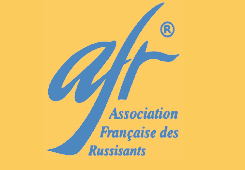
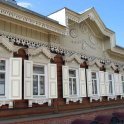
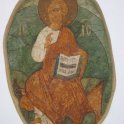

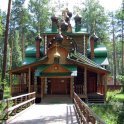
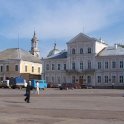

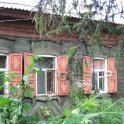
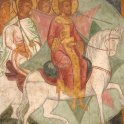



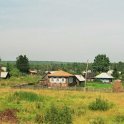
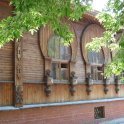

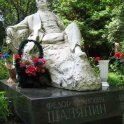



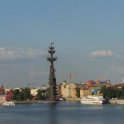

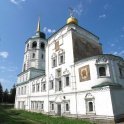
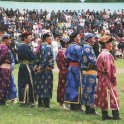

 Sommaire
Sommaire